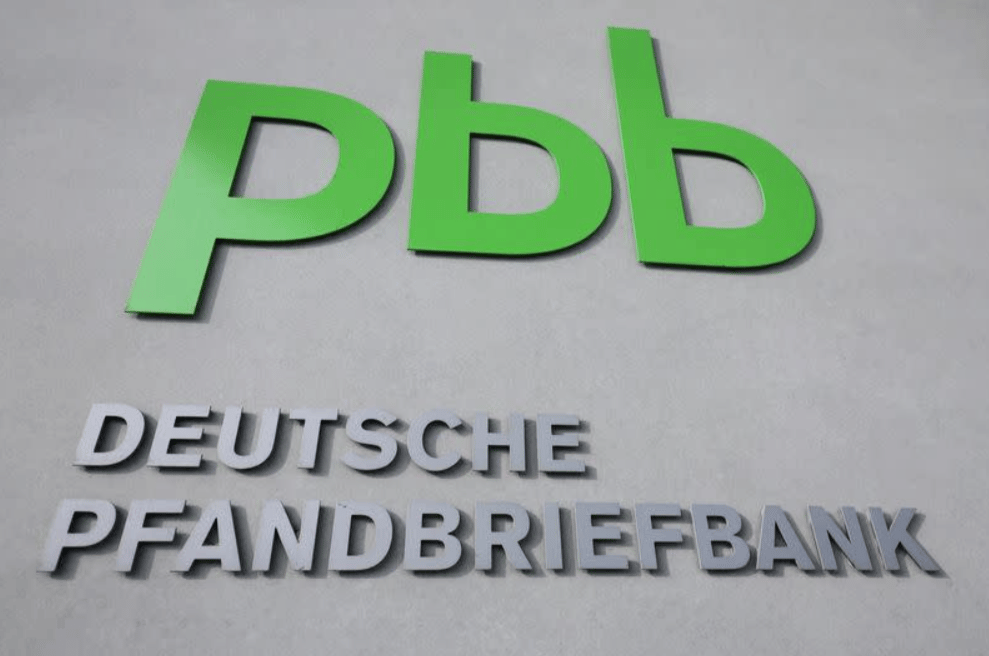Deutsche Pfandbriefbank Halts U.S. Operations, Withdraws Guidance Amid Strategic Restructuring
Deutsche Pfandbriefbank AG $PBBGF, a key player in European real estate finance, announced on Wednesday that it is withdrawing its full-year 2025 guidance. The decision follows extraordinary expenses tied to exiting the U.S. commercial real estate market, marking a pivotal moment in the bank’s long-term strategic overhaul.
The move signals deeper challenges for German lenders with exposure to the global property cycle and underscores the pressures facing financial institutions attempting to rebalance risk-weighted assets in a volatile interest rate environment.
Strategic Retreat from the U.S. and Its Implications
The Munich-based bank cited exceptional one-time costs linked to discontinuing U.S. operations as the core reason for suspending its annual financial outlook. Though not disclosing exact figures, the impact appears significant enough to reshape PBB’s capital planning and operational roadmap.
The U.S. commercial property market, especially in sectors like office real estate, has seen rising vacancy rates, refinancing challenges, and declining asset values since post-pandemic normalization began in 2022. For European banks like PBB, exposure to such trends has eroded profitability and triggered regulatory capital concerns.
By reallocating capital away from the U.S., Deutsche Pfandbriefbank aims to accelerate its transformation agenda, potentially concentrating more on European core markets and digital infrastructure. This reorientation reflects a growing trend among European financial institutions to reduce geographic complexity and strengthen balance sheets through simplified business models.

Quick Facts:
🇩🇪 Issuer: Deutsche Pfandbriefbank AG
🇺🇸 Action: Discontinuation of business operations in the United States
📉 Impact: Withdrawal of full-year 2025 financial guidance
💰 Reason: Extraordinary expenses tied to U.S. exit
🔄 Outlook: Redeployment of capital to fund internal transformation
Market Reaction and Sectoral Commentary
The announcement triggered immediate attention in equity and credit markets. Shares of Deutsche Pfandbriefbank experienced heightened volatility, reflecting uncertainty about short-term earnings and the magnitude of write-downs related to U.S. divestitures.
While the bank emphasized the long-term benefits of capital reallocation, analysts remain cautious, noting that full visibility into cost absorption timelines is still lacking. Given that real estate-linked lenders face tighter regulatory scrutiny under Basel IV frameworks, strategic withdrawals from risk-intensive geographies may soon become more common.
Rival institutions with U.S. commercial real estate (CRE) exposure, such as Aareal Bank AG and Berlin Hyp, could also reassess their positions as investor tolerance for CRE risk narrows further. Meanwhile, European Central Bank (ECB) supervision has increasingly pushed institutions to adjust portfolios in line with sectoral risk-weight recommendations.

Key Points:
Withdrawal of Guidance — PBB halts 2025 financial projections due to unpredictable near-term costs.
Exit from U.S. Market — Strategic retreat aimed at lowering risk exposure and freeing up regulatory capital.
CRE Headwinds — Sluggish valuations and elevated credit risk in U.S. commercial property sector.
Regulatory Considerations — Basel IV and ECB capital rules influencing geographic exposure decisions.
Share Price Sensitivity — PBBG.DE underperforming DAX Financials Index in the days following the news.
Transformation Focus — Redeployment of resources toward digital infrastructure and European lending hubs.
Broader Sector Trend — Signals a more defensive posture among Europe’s real estate-focused banks.
Realignment Signals Caution, But Strategic Clarity
Deutsche Pfandbriefbank’s decision to cease its U.S. operations and withdraw full-year guidance reveals a decisive pivot in its global strategy. While short-term financial unpredictability has introduced market volatility, the longer-term transformation—if executed efficiently—could position the bank for greater resilience and capital efficiency in core European markets.
As interest rates plateau and real estate repricing continues globally, banks with international CRE exposure are under pressure to restructure portfolios, streamline operations, and reduce exposure to markets with impaired liquidity or elevated credit stress. PBB’s exit may set a precedent for a broader recalibration across the European financial sector, particularly for niche real estate lenders.















Comments
Such deals reflect a growing alignment between investor priorities and long-term automation trends